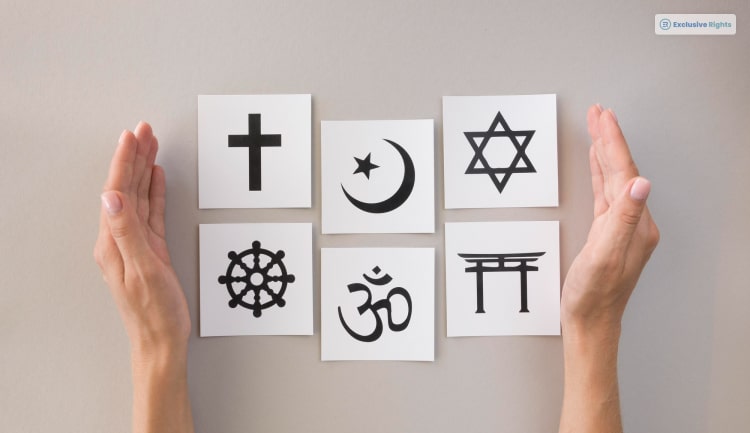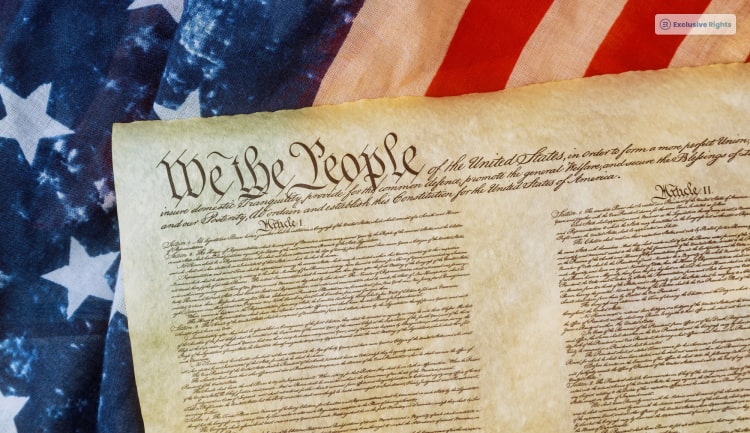
Table Of Contents
- Freedom Of Belief And Religion: Importance
- Freedom Of Belief And Religion: Components
- a. Freedom of thought, conscience, religion, and belief.
- b. Freedom to practice any religion or belief
- c. Freedom against discrimination and to equal treatment
- e. A clause of Article 18 also lays down certain restrictions on this freedom
- d. Coercion and intolerance not tolerated
- Freedom Of Belief And Religion: US Constitution
- The First Amendment guarantees neutrality.
- Complete separation of church and state.
- Freedom Of Belief And Religion: US Supreme Court Landmark Decisions
- Wrapping It Up!
All About Freedom Of Belief And Religion
Freedom of belief and religion is a fundamental right recognized by the United Nations and all its members. Article 18 of the Universal Declaration of Human Rights deals with this fundamental right in detail.
The International Covenant on Civil and Political Rights is another organization reiterating the freedom of belief and religion specified in Article 18. It states that an individual will exercise this freedom without being subject to any discrimination.
An independent expert, known as the “special rapporteur,” has also been appointed by United Nations. They have to monitor and report any violation of this fundamental right.
On numerous occasions, the General Assembly of the United Nations has condemned practices of religious intolerance. The freedom of belief and religion is also a fundamental right protected by the Constitution of the United States. The United Nations organization has also made a lot of effort to foster tolerance and mutual respect among different communities of the world.
Freedom Of Belief And Religion: Importance

World peace is impossible without religious tolerance as well as tolerance of different beliefs. The United Nations has resolved to denounce all attacks on religious places. The organs of the UN implement various strategies, educational initiatives, and campaigns to raise awareness of history, social fabric, and traditions practised by different communities all over the world.
The UN has especially addressed the conflict going on in the Middle East.
Authorities will take legal measures against discriminatory acts and crimes. This is why it is important to protect freedom of beliefs and religion.
a. For the protection of individual autonomy required in democratic functioning.
b. Protection of diversity and pluralism.
c. They promote tolerance and mutual respect, which are essential for societal and political harmony.
d. To protect the individual expression of culture.
e. Safeguarding the national and international conscience.
f. Encouraging spiritual growth in the world.
g. Lastly, to make the world a better place by upholding human rights.
Freedom Of Belief And Religion: Components

Article 18 of the Universal Declaration of Human Rights states, “Everyone shall have the right to freedom of thought, conscience and religion. This right shall include freedom to have or to adopt a religion or belief of his choice, and freedom, either individually or in community with others and in public or private, to manifest his religion or belief in worship, observance, practice and teaching.” The article is a crucial declaration of protection and promotion of freedom of thought, conscience, religion, and belief.
Let us look into the components of Article 18.
a. Freedom of thought, conscience, religion, and belief.
Under Article 18 of the declaration, this is an inherent right of an individual. They have the liberty to form, adapt and change their beliefs and religion.
b. Freedom to practice any religion or belief
An individual is free to practice any religion, worship and observe it, and even preach it. They can participate in ceremonies, practices, and rituals openly and freely without any interference from others. However, such a manner of practice should stay within public policy.
c. Freedom against discrimination and to equal treatment
Article 18 states that an individual will enjoy the right to freedom of thought, conscience, religion, and belief without being subject to discrimination. Discrimination on the basis of race, language, religion, and other societal and economic factors is prohibited.
e. A clause of Article 18 also lays down certain restrictions on this freedom
Any practice of this freedom should not threaten public policy, public safety, order, public health, or moral standards. Local laws and national laws will prescribe these limitations.
d. Coercion and intolerance not tolerated
According to the provisions of this article, practices of coercion, forced conversions, and any other forms of intolerance are prohibited. The act freely condemns violence, persecution, and discrimination and fosters mutual respect and understanding.
This framework provided by Article 18 also serves as a framework for the Constitution of the United States.
Freedom Of Belief And Religion: US Constitution

“Congress shall make no law respecting an establishment of religion, or prohibiting the free exercise thereof.”- First Amendment to the US Constitution.
This clause guarantees secularism in the United States. The state gives its individuals full liberty to practice their religious beliefs of choice. There is no state-endorsed religion in the United States. Rather all religions are equally respected under the law. One can choose to be religious, an atheist, an agnostic, or follow any other spiritual way of living. Personal convictions are beyond interference from the government.
The First Amendment guarantees neutrality.
Like in the case of the United Nations, the US Constitution also gives an individual the right to hold religious worship rituals and other ceremonies both publicly and privately. The United States government will not pick sides regarding religious freedoms.
Complete separation of church and state.
Political business and religious business will always stay independent of each other in the United States. The church or any other religious institution will not govern public policies.
Apart from the first amendment, Supreme Court landmark judgments have also got to play a very important role in establishing freedom of belief and religion.
Freedom Of Belief And Religion: US Supreme Court Landmark Decisions
Landmark judgments of the Supreme Court have shaped the nation’s freedom of belief and religion. These are the various interpretation of the problem entered right through rulings of the Supreme Court.
- In the case of Reynolds v. United States, the court rules. Any religious practice that goes against public policy and openly violates the laws of the land will not be protected under the First Amendment.
- In the case of Burwell v. Hobby Lobby, the Supreme Court passed a judgment on the Affordable Care Act. The act gave contraceptive coverage to their employees as a part of their health insurance. The Court held that under the religious freedom restoration act, a company could file for exemptions on the basis of its religious beliefs.
Wrapping It Up!
Thus, as a concluding statement, it is safe to save that the first amendment of the American Constitution guarantees democracy, diversity, and autonomy of an individual. It ensures that an individual’s right to practice their religion, hold on to their belief, and against coercion is protected. The United Nations has also made efforts to fight against religious injustice and acts of discrimination every day.
Did You Know?
22nd August is the International Day for commemorating victims of religious violence. This was a step to raise awareness and educate individuals about religious tolerance and harmony.









